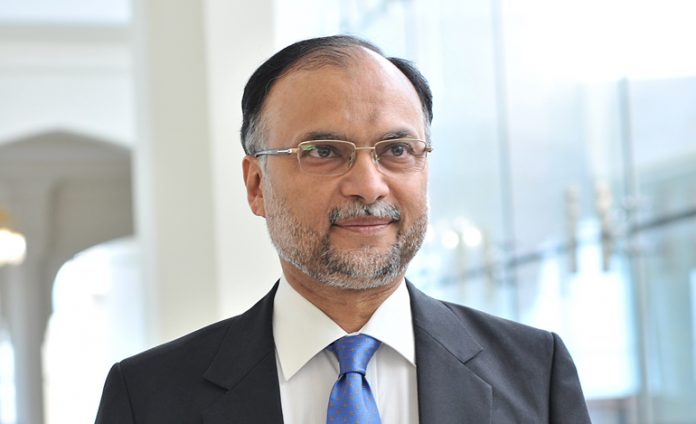ISLAMABAD: Minister for Interior, Ahsan Iqbal on Tuesday said private sector must play the role of an engine of growth under China Pakistan Economic Corridor (CPEC), framework attracting foreign investors and seeking joint ventures through multiple opportunities.
Work on CPEC projects was successfully underway as this project was a game changer for people, he said this while addressing a Sustainable Development Conference (SDC)-Seventy Years of Development: The Way Forward.
Sustainable Development Policy Institute (SDPI) is organising the Conference here from December 5 to 7 with objectives to provide an interactive forum to meet with experts and find relevant ideas and solutions in an atmosphere of sharing and explorings.
Ahsan Iqbal, who is also Minister for Planning and Development urged the business community to capitalize on business opportunities under CPEC, adding that infrastructural improvement will encourage greenfield industrial set-ups, with focus on value additive industries that will provide a real platform for competitive trade in the global economy.
He said Pakistan of today is different from that of 2013 when the economy was badly deteriorated, local industries were almost non-existent and 18-20 hour load-shedding was the order of the day.
He said that CPEC has enabled Pakistan to overcome critical bottlenecks of energy and transport infrastructure, and the stage is set for Pakistan to enter a phase of industrial cooperation.
The Minister said China serves the best example and success story of Special Economic Zones (SEZs) that have transformed their economy in a short time span. CPEC, therefore, provides the best opportunity for our business community to learn Chinese experience, seek joint ventures with Chinese companies and enable transfer of top-notch technology to the country.
He said external forces were hatching conspiracies to halt China Pakistan Economic Corridor, but they would never succeed in their sinister designs, adding that CPEC has brought a message of prosperity for the entire region.
The minister said enemies of Pakistan could not digest development in the country so they were targeting its economy, peace and stability to stop its progress.
Ahsan Iqbal while talking about economic development said Pakistan is on the path to progress and would make its way to top 20 economies by the year 2030.
“We have achieved 5.3 per cent highest growth rate in past 10 years while “Suqrat and Buqrat” who sit at televisions promote negativity instead of talking about our achievements,” he said and added this approach needs to be changed.
He was of the view that growth target of 6.2 plus per cent could have been easily achieved provided peaceful and conducive environment prevailed in the country.
The Minister said that renowned rating agencies like WBC said that if Pakistan continued its growth at its current pace, it would be included in top economies of the world.
“If we want to secure future of youth we must promote our growth rate,” he said.
Ahsan said that so far as many as 7000 MW electricity has been energized, which was 42 per cent of total energy resources developed during the past seventy years.
He said that when the government assumed power in 2013, there was a total 16,000-megawatt electricity in the system, now more than 7000 had been added into it.
He said that by May 2018, 2500 to 3000 MW more electricity would be added to the national grid, bringing the total generation during the PML (N) tenure to 10,000 megawatt, which is a record.
“People used to light candles but we have added 10,000 MW of electricity in the national grid,” he added.
It is mentioned here that SDC would have three streams under the overarching theme. The SDPI will compile policy recommendations from 30 plus panels and plenary sessions which will be communicated to respective ministries and at regional level institutions.
The compiled recommendations along with detailed reports of sessions will be published in a special edition of SDPI’s Research and News Bulletin.
The policy recommendations coming out of the sessions will specifically be presented to policymakers, government officials, civil society members, academicians, private sector and researchers.
There will be two to three keynote plenary sessions in which prominent keynote speakers will be invited to address significant areas as highlighted in the overarching theme. The plenary each day will be followed by concurrent sessions/panels on sub-themes.
























